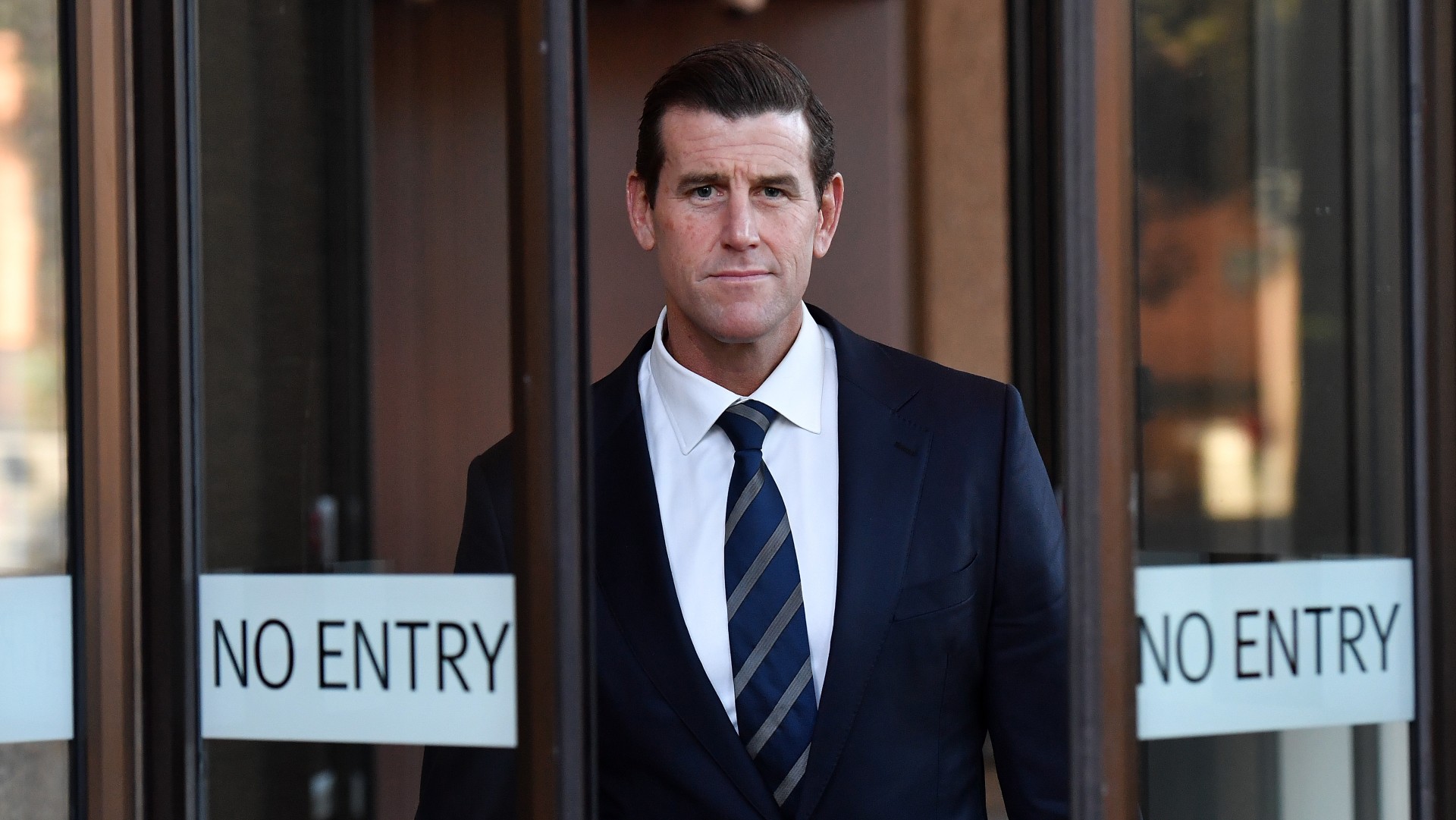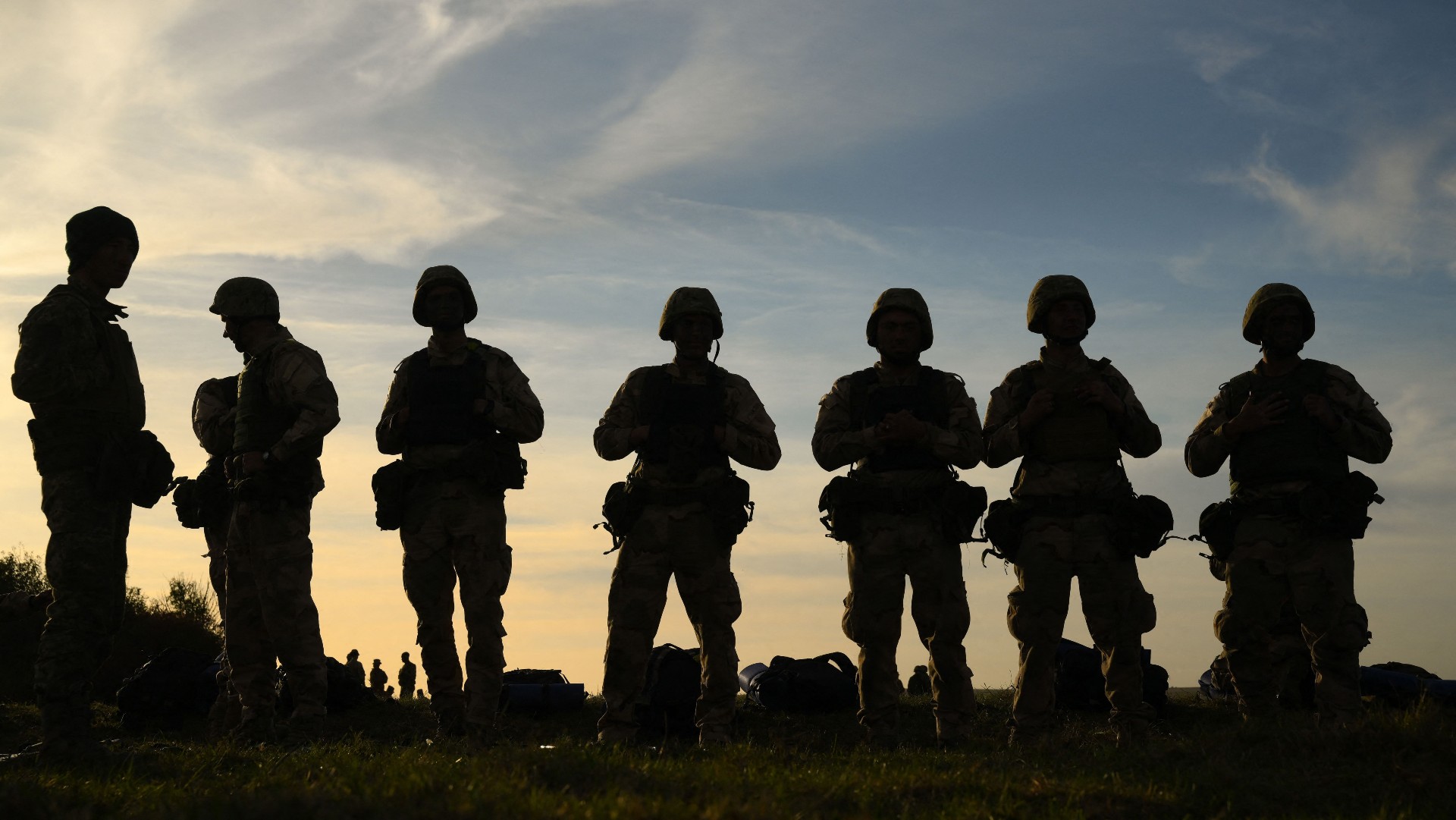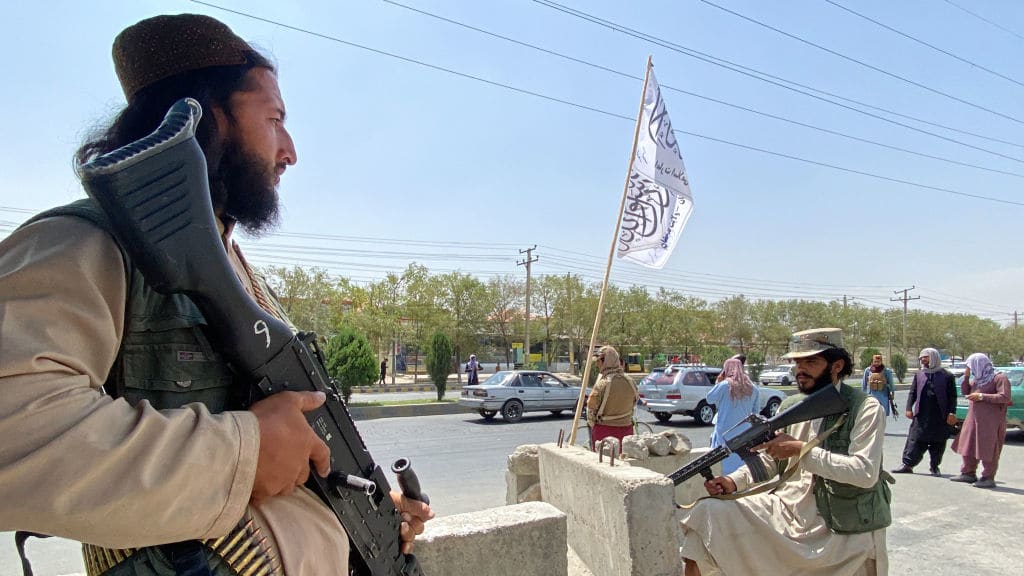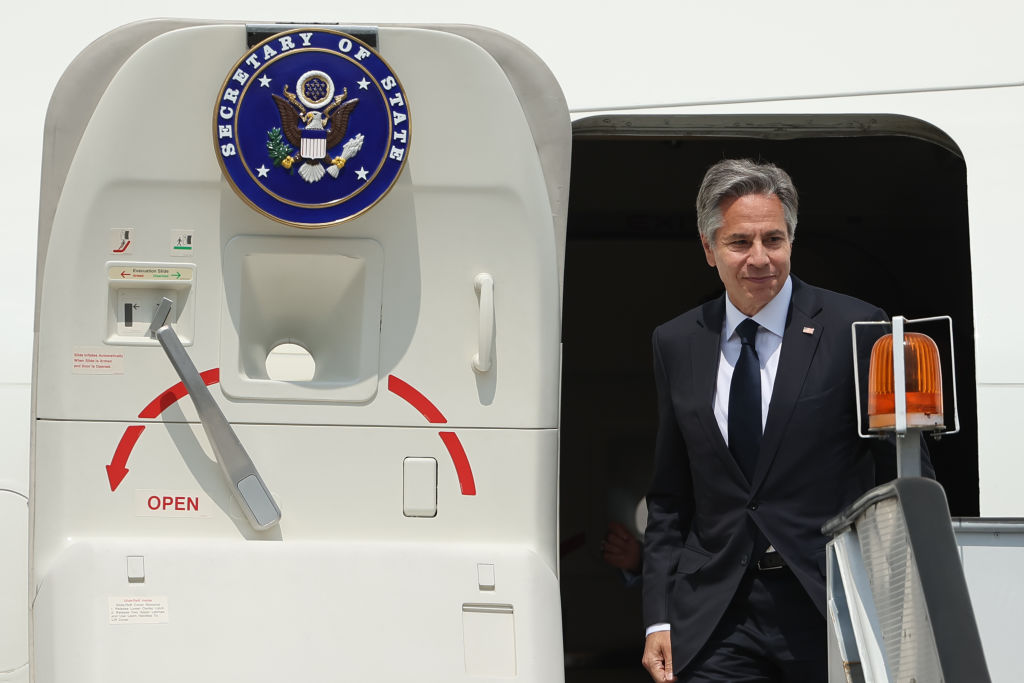Afghanistan: A year after the withdrawal
What did the U.S. leave behind when it pulled out of Afghanistan?


A free daily email with the biggest news stories of the day – and the best features from TheWeek.com
You are now subscribed
Your newsletter sign-up was successful
One year ago this month, the Taliban captured Kabul, crushing the U.S.-backed Afghan regime and bringing an end to a 20-year war. The U.S. withdrawal, which continued through the end of August, was a disaster. Desperate Afghans clung to the landing gear of departing planes, falling to their deaths as they attempted to flee the country. A suicide bombing outside Hamid Karzai International Airport killed nearly 200 people, including 13 members of the U.S. military.
Today, the memory of defeat in America's longest war still stings as political factions continue to trade blame over the debacle. Meanwhile, half a world away, Afghans struggle to survive under the heavy hand of the Taliban.
"Winning was easy, young man. Governing's harder."
The withdrawal of U.S. aid plunged Afghanistan into a dire economic crisis. "Many Afghans ... are only looking ahead with despair. The evaporation of international aid to the country, compounded by U.S. sanctions that froze some $7 billion of Afghan foreign reserves, sent Afghanistan's economy into a tailspin," wrote Ishaan Tharoor for The Washington Post. "More than half the population is going hungry and more than a million children are severely malnourished." Some families sold their daughters as child brides, while others sold their organs — or even their children's organs — on the black market to buy food or pay debts.
The Week
Escape your echo chamber. Get the facts behind the news, plus analysis from multiple perspectives.

Sign up for The Week's Free Newsletters
From our morning news briefing to a weekly Good News Newsletter, get the best of The Week delivered directly to your inbox.
From our morning news briefing to a weekly Good News Newsletter, get the best of The Week delivered directly to your inbox.
Photojournalist Victor J. Blue, who was in Kabul last year as the city fell to the Taliban, wrote in The New York Times that Afghanistan "continues to lack a functioning economy" and that men "who once held office jobs must now sell vegetables at the market or peddle used goods to be able to buy a little bit of food to take home." Women have fared even worse. The Globe and Mail notes that "women's participation in the workplace and other aspects of daily life has been restricted and in many cases taken away." David Lyon writes in The Spectator World that "[o]ne prominent regional woman's leader was beaten by her own younger brother." Face coverings are strictly enforced.
The Taliban initially said that girls could remain in school but later went back on that promise. Blue recounted his conversation with two sisters, Basma and Bahara Ahmadi, who "can no longer go to high school" and instead "spend their days poring over English lessons in the same room that houses the loom where their family weaves carpets to make ends meet."
In The Guardian, Stefanie Glinski wrote that corruption in Afghanistan has actually decreased since the U.S. withdrawal. Otherwise, the news is bleak. Lyon writes that the Taliban has "no capacity to manage" the sophisticated accounting system the U.S.-backed regime used to manage Afghanistan's public finances. Glinski describes how former government employees have been murdered by the Taliban, journalists have been "detained and beaten," and attacks against minority groups have increased sharply.
Biden to blame?
House Minority Whip Steve Scalise (R-La.) and Rep. Jake Ellzey (R-Texas) laid the blame for the disastrous withdrawal squarely at President Biden's feet in a new op-ed for Fox News. "President Biden's poor judgment caused unnecessary chaos and loss of life. In the hasty exit, billions of dollars of the world's most technologically advanced military weapons were left behind, and are now in the hands of the Taliban," the lawmakers wrote.
A free daily email with the biggest news stories of the day – and the best features from TheWeek.com
Things certainly didn't go as smoothly as they could have. "In August 2021, the lack of coordination among federal agencies was fully on display: Intelligence agencies didn't say loud enough that the Kabul government would fall, no single supervisor initially managed the chaotic evacuation of Afghan partners, and the Biden administration was too slow to launch visa waiver programs for fleeing Afghans," wrote Jonathan Guyer in Vox.
Scalise and Ellzey added that Biden had "created an opportunity for al Qaeda to make Afghanistan a safe haven for terrorists once again."
Afghanistan is not overrun with terror groups yet, but the U.S. assassination of Al Qaeda leader Ayman Zawahiri in Kabul last month is a harbinger of things to come, wrote Colin Clarke, a terrorism scholar and senior research fellow at the Soufan Center, in the Los Angeles Times. "As Afghanistan becomes more of a permissive environment for terrorist groups, militants will have more bandwidth to meet, plot, and plan attacks, perhaps attempting to encourage homegrown violent extremists in Europe or the United States to take action on their own while offering advice and preparatory planning tips," Clarke predicted.
The two GOP lawmakers ended their Fox News op-ed by promising greater accountability if Republicans take back the House in November. "House Republicans are committed to honoring those who served, and those who lost their lives in Afghanistan. We will not let their sacrifice be in vain. We will leave no stone unturned in our oversight of this embarrassing disaster of American foreign policy," they wrote.
Defending the decision
Guyer argues that, although Biden "took responsibility" for the chaos surrounding the withdrawal, he also attempted to pass the buck. He blamed Afghans "for giving up their country without a fight," and he "blamed his predecessor for making a bad deal with the Taliban." But Guyer wasn't having any of it: "Yes, the Afghan army did disintegrate. And Trump, who signed the Doha Agreement in 2020 with the Taliban that committed to withdrawing U.S. troops by May 2021, laid few plans to follow through on it. But Biden's team had eight months in office to plot a responsible drawdown," he wrote.
National Security Council spokesperson Adrienne Watson claimed that a preliminary Republican report blaming Biden for the botched pullout was "riddled with inaccurate characterizations, cherry-picked information, and false claims." She also accused Republicans on the House Foreign Affairs Committee of advocating "for endless war and for sending even more American troops to Afghanistan."
"I would argue that the events of the last year bear that out, that we were able to focus on other threats and challenges, not keeping a couple of thousand or perhaps even more troops on the ground in Afghanistan," John Kirby, another spokesperson for the National Security Council, told NPR. Kirby also emphasized the lives saved during the withdrawal and Biden's strong belief that ending the war was in America's national interest.
The progressive veterans' organization VoteVets praised Biden for having "ended America's longest war and improved our national security by bringing our Troops home."
Grayson Quay was the weekend editor at TheWeek.com. His writing has also been published in National Review, the Pittsburgh Post-Gazette, Modern Age, The American Conservative, The Spectator World, and other outlets. Grayson earned his M.A. from Georgetown University in 2019.
-
 Why is the Trump administration talking about ‘Western civilization’?
Why is the Trump administration talking about ‘Western civilization’?Talking Points Rubio says Europe, US bonded by religion and ancestry
-
 Quentin Deranque: a student’s death energizes the French far right
Quentin Deranque: a student’s death energizes the French far rightIN THE SPOTLIGHT Reactions to the violent killing of an ultraconservative activist offer a glimpse at the culture wars roiling France ahead of next year’s elections
-
 Secured vs. unsecured loans: how do they differ and which is better?
Secured vs. unsecured loans: how do they differ and which is better?the explainer They are distinguished by the level of risk and the inclusion of collateral
-
 Operation Rubific: the government's secret Afghan relocation scheme
Operation Rubific: the government's secret Afghan relocation schemeThe Explainer Massive data leak a 'national embarrassment' that has ended up costing taxpayer billions
-
 The Taliban’s ‘unprecedented’ crackdown on opium poppy crops in Afghanistan
The Taliban’s ‘unprecedented’ crackdown on opium poppy crops in Afghanistanfeature Cultivation in former poppy-growing heartland Helmand has been slashed from 120,000 hectares to less than 1,000
-
 Ben Roberts-Smith: will more Afghanistan war crimes trials follow?
Ben Roberts-Smith: will more Afghanistan war crimes trials follow?Today's Big Question Former SAS soldier lost defamation case against Australian newspapers that accused him of murder
-
 Can the UK rely on the British Army to defend itself?
Can the UK rely on the British Army to defend itself?Today's Big Question Armed forces in ‘dire state’ and no longer regarded as top-level fighting force, US general warns
-
 Taliban releases 2 Americans held in Afghanistan
Taliban releases 2 Americans held in AfghanistanSpeed Read
-
 American detained in Afghanistan for over 2 years released in prisoner exchange
American detained in Afghanistan for over 2 years released in prisoner exchangeSpeed Read
-
 Prominent cleric who supported female education killed in Afghanistan bombing
Prominent cleric who supported female education killed in Afghanistan bombingSpeed Read
-
 What the U.S. accomplished by killing al-Zawahiri
What the U.S. accomplished by killing al-Zawahiriopinion The sharpest opinions on the debate from around the web
